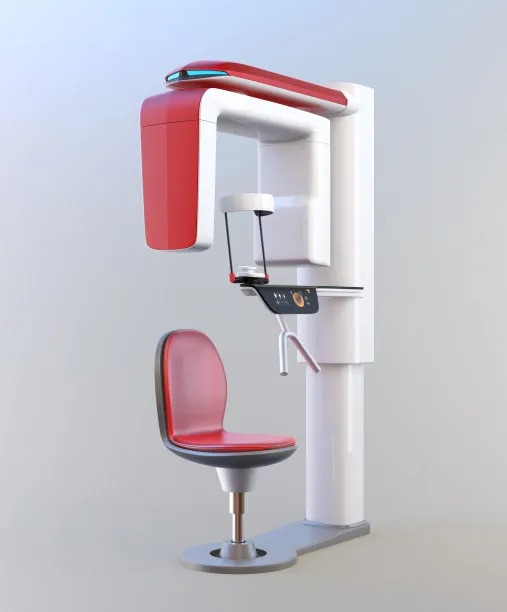Summary: Undergoing a dental implant procedure can significantly enhance oral health and improve quality of life. However, ensuring optimal success and recovery requires careful planning and precautionary measures. This article outlines essential precautions, including comprehensive pre-operative consultations, thorough medical evaluations, understanding the procedure and recovery timeline, and maintaining excellent oral hygiene. By taking these steps, patients can set themselves up for successful outcomes and avoid potential complications, paving the way for a smoother recovery and lasting dental health.
1. Importance of Comprehensive Pre-operative Consultations

Before proceeding with a dental implant procedure, its vital to engage in a thorough pre-operative consultation with your dentist or oral surgeon. During this discussion, practitioners will evaluate your specific needs and provide information tailored to your dental health status. Its essential to ask questions about the procedure, expected outcomes, and any potential risks involved, which fosters a clearer understanding of what lies ahead.
Moreover, this consultation period is an excellent opportunity to discuss any previous dental work or health concerns you may have. Your dental professional will want to know your comprehensive medical history to ensure that the procedure aligns with your overall health and doesnt pose any undue risks.
Additionally, understanding the implications of the implant procedure, including any necessary preparatory treatments, will help you make informed decisions. This foundational step is critical for setting realistic expectations before undergoing the surgery.
2. Thorough Medical Evaluations Are Essential
A thorough medical evaluation is a crucial precaution for anyone considering dental implants. This entails not just a dental assessment but also a full review of your medical history. Factors such as existing medical conditions, medications, and allergies need to be evaluated, as these may influence the success of your implant.
Common conditions such as diabetes, osteoporosis, or autoimmune disorders can affect the healing process and implant integration. Your dentist might recommend specific health checks or referrals to your primary care physician, ensuring that all aspects of your health are considered before proceeding with the implant surgery.
Furthermore, aspects like tobacco use can significantly impact healing and long-term success rates for dental implants. Its crucial to address lifestyle factors that may pose risks, allowing your dentist to help you devise a plan that encourages a healthy recovery post-surgery.
3. Understanding the Procedure and Recovery Timeline
A clear understanding of the dental implant procedure itself is essential for a successful experience. Patients should be well-informed about the stages of the treatment, including the initial surgery, any required bone grafting, and the placement of the abutment and crown. Knowing what to expect will help reduce anxiety and prepare you mentally for the process.
In addition to the technical details, its important to understand the recovery timeline. Familiarizing yourself with what post-operative care looks like can help you better plan your schedule around the procedure. Following surgery, some swelling or discomfort is expected, and knowing this in advance can set realistic expectations for pain management and daily activities.
Moreover, your dentist will provide you with essential post-operative instructions, including dietary recommendations and activity restrictions. Adhering to these guidelines ensures a smoother recovery and promotes better integration of the implant into the jawbone.
4. Commitment to Maintaining Excellent Oral Hygiene
After undergoing a dental implant procedure, one of the most crucial aspects of recovery is maintaining excellent oral hygiene. Patients must be diligent about brushing, flossing, and following any specific cleaning recommendations provided by their dentist. Good oral hygiene practices will help prevent infection and complications that could jeopardize the success of the implant.
In addition to your daily oral hygiene routine, its wise to schedule follow-up appointments with your dentist to monitor the healing process. These check-ups allow your dentist to assess the integration of the implant and identify any issues before they develop into significant problems.
Finally, consider implementing additional practices, such as using an antibacterial mouthwash or avoiding certain types of food that could disrupt healing. Such commitments will contribute to the longevity of your implant and overall oral health.
Summary:
In conclusion, taking essential precautions before undergoing a dental implant procedure is critical for ensuring optimal success and effective recovery. Comprehensive pre-operative consultations, thorough medical evaluations, understanding the procedure and recovery timeline, and maintaining excellent oral hygiene are fundamental steps that contribute to a positive outcome.
By prioritizing these precautions, patients can enhance their chances for a successful implant experience while minimizing potential complications. Remember, investing time and effort into your dental health pays off in the long run.
This article is compiled by Vickong Dental and the content is for reference only.
Vickong Dental
Vickong Dental is a large medical group established in Hong Kong in 2008 by professors from well-known medical universities in Guangdong and Hong Kong, as well as medical doctors from key national '985' universities (including Master's supervisors and senior professors). The chain of branches brings together expert dentists with PhDs and Master's degrees from Hong Kong and Mainland China, committed to providing high-quality dental treatment.
"Vickong Dental Practices the University Motto of 'Healing and Serving Society,' with a Stable Operation for Sixteen Years. It Has Been honored with Hong Kong Enterprise Leaders's Choice,' and is a Global Trusted Implant Center for the Nobel Implant System. Recommended by Hong Kong Metro Broadcast and Guangdong Television, it Serves Customers from Over Thirty Countries and Regions, Gaining the Trust and Favor of Citizens from the Guangdong-Hong Kong-Macau Greater Bay Area and Surrounding Cities.

Thousands of customers' unanimous praise
The most recognized and highly recommended dental service by customers in the Guangdong-Hong Kong-Macau Greater Bay Area
We Ensure You Receive Detailed Care and Attention Here
Hong Kong standards, Shenzhen prices, Your Trusted English-speaking dentists

Vickong Dental Medical-Grade Instrument Disinfection Process
Vickong Dental Medical-Grade Instrument Disinfection Process

Vickong Dental Chain: A Warm and Comfortable Environment for Treatment






Appointment Hours

Q&A
Why choose Vickong Dental?
Vickong Dental practices the university motto 「Medicine to Benefit Society」, with each branch bringing together highly qualified dentists with doctoral and master’s degrees from Hong Kong and the Mainland, and has maintained seventeen years of steady operation。Recipient of 「2024 Hong Kong Enterprise Leaders Brand」, 「2025 Hong Kong Enterprise Leaders Brand」, a Nobel Biocare Global Trusted Implant Center, and a brand recommended by Metro Radio Hong Kong and Guangdong TV。
To date, we have served customers from more than thirty countries and regions,earning exceptionally high word-of-mouth recognition and trusted recommendations from residents across the Guangdong-Hong Kong-Macao Greater Bay Area and surrounding cities
We have eight major branches in Zhuhai、Shenzhen,and a consultation and service assurance center in Hong Kong,so you can book a free consultation at any time for any questions,which is very reassuring.
If I do not accept the quotation after the CT scan, will I be charged??
No! As long as the actual treatment has not started, you will not be charged any fees.
Will there be any additional charges during the treatment process?
No, there won’t be any additional charges. Before treatment begins, we will clearly explain the treatment plan and its corresponding fees. Only after the patient agrees and signs the consent form will we proceed with the dental service.
Can I pay in Hong Kong dollars?
Yes. Vickong Dental accepts payment in Hong Kong dollars. The amount will be converted based on the exchange rate of the day, and the applicable rate will be clearly communicated to you in advance.
Can I reschedule my appointment at any time?
Yes. Please contact us via **WeChat** or **WhatsApp** as early as possible, providing your original appointment time and details, along with your preferred new date and time slot for rescheduling.













